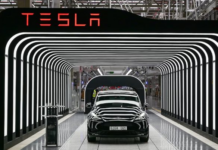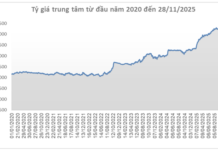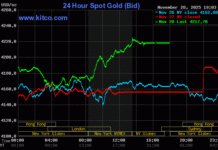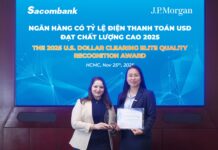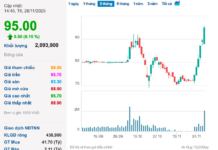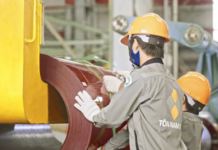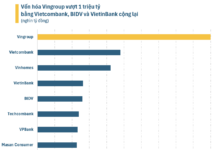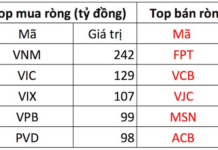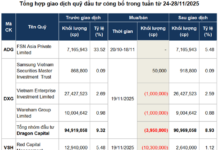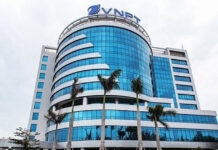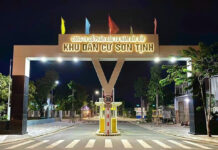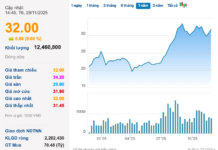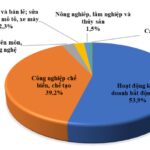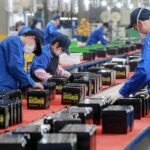Vietnam Seeks to Boost Foreign Investment with Targeted Support Policies
In a draft decree on the establishment, management, and utilization of the Investment Support Fund, the Ministry of Planning and Investment (MPI) noted that several large conglomerates have surveyed and considered investing in Vietnam in the past, but ultimately opted for other countries.
According to the MPI, countries are now focusing on attracting high-tech industries, including areas that are global trends such as chips, semiconductors, and artificial intelligence (AI).
Many countries, including the United States, South Korea, India, China, European nations, and even neighboring countries like Singapore, Malaysia, Indonesia, and Thailand, offer diverse and attractive support policies. They employ a combination of income-based incentives (tax breaks and reductions) and cost-based incentives, with support packages that can amount to billions of USD.

Intel considered investing $3.3 billion in a chip manufacturing project in Vietnam but ultimately chose Poland. Image: Intel Products Vietnam |
These countries, particularly Vietnam’s neighbors in Southeast Asia, have successfully attracted significant high-tech investment projects due to their agile policy reforms.
Meanwhile, the MPI noted that while foreign investment attraction has grown in recent years, the number of large-scale projects with high technology content remains modest.
There are signs of expansion pauses for some high-tech projects, and several businesses have officially announced their temporary halt in new investment and expansion plans in Vietnam (LG, Samsung, Intel).
Additionally, some large corporations have surveyed and considered investing in Vietnam but have either not chosen the country or decided to wait and observe Vietnam’s policy responses.
Notable examples include LG Chemical, which proposed a battery manufacturing project and requested a 30% cash production support from Vietnam, but later moved to Indonesia. Intel proposed a $3.3 billion chip manufacturing project and asked for a 15% cash incentive, but they ultimately chose Poland. AT&S, an Austrian semiconductor company, surveyed and planned to invest in Vietnam but turned to Malaysia as the country couldn’t meet their expectations regarding cost and the availability of highly skilled labor.
Some large-scale high-tech projects are also on hold, awaiting new policies from Vietnam. For instance, Samsung is considering shifting its production lines to India, LG has temporarily halted its new $5 billion electronics manufacturing investment plan, and SMC (Japan) is contemplating investing $500 million to $1 billion in Dong Nai province.
Given this context, the MPI believes that Vietnam needs to introduce breakthrough and highly selective investment support policies to maintain its competitive edge and attract large corporations with extensive supply chains and satellite business networks, significantly impacting the economy and society.
These policies are not intended to compensate investors subject to the global minimum tax but to encourage all enterprises that meet the criteria for priority investment areas. They also demonstrate the Vietnamese government’s spirit of “goodwill accompaniment” toward investors amid a changing international landscape.
With ambitious foreign investment attraction targets for the periods 2021-2025 and 2026-2030, and in the face of intense international competition, the MPI emphasizes the urgency of introducing new investment support policies at this juncture.
Luong Bang
Dragon Capital Chairman: “Long-term vision is needed, accepting necessary adjustments for a safer, more efficient, and higher quality market”
According to Mr. Dominic Scriven, Chairman of Dragon Capital, the role of the finance industry in the stock market will be significant in 2023 and possibly in 2024. The roles of other industries, such as real estate or consumer goods, will depend on their respective challenges.
Economics Expert Dinh Trong Thinh: Proactively Adapting and Accelerating Export
The month of January 2024 saw an impressive increase of nearly 40% in imports and exports, a testament to the relentless efforts of businesses in securing orders from both traditional and emerging markets.



